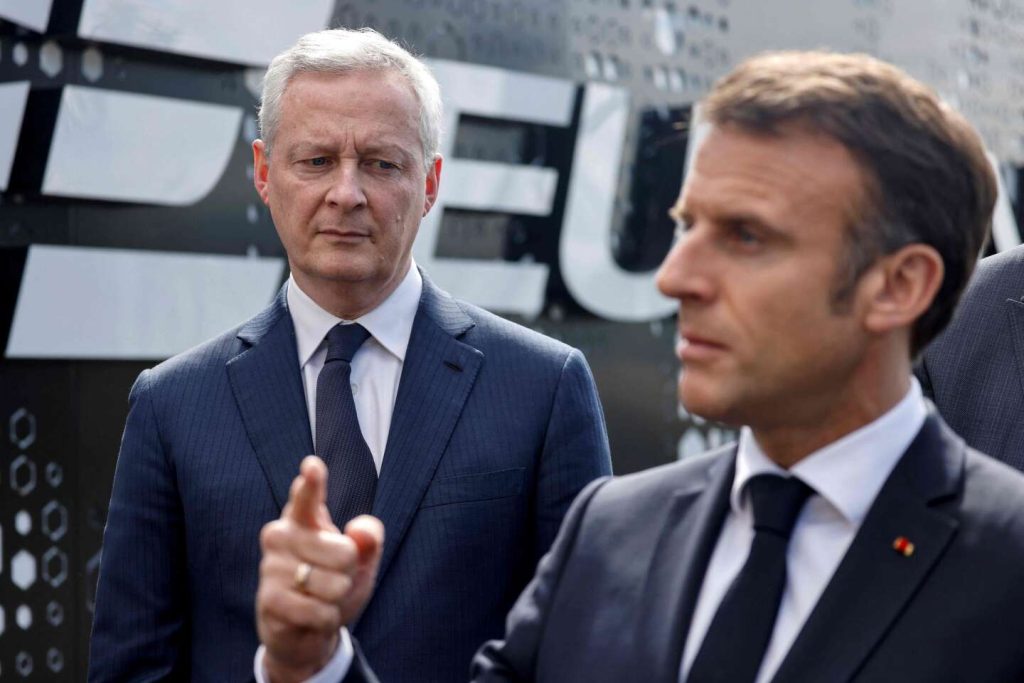Due to not wanting to close the door on the “whatever it takes” policy soon enough, it ended up slamming loudly. The new budget trajectory that the government was forced to hastily draw up after the deficit slipped in 2023, sketches out a rather tortuous path on both the economic and political fronts. The roadmap that the executive sent to the High Council of Public Finance on April 9th seems hard to adhere to. While the goal remains the same, to bring the level of the public deficit back under 3% of GDP by 2027, the steps to be taken resemble a difficult obstacle course.
In the short term, facing an imbalance between expenses and revenues that is now projected to reach 5.1% in 2024, there is a need to find 10 billion euros in savings, in addition to the 10 billion already planned just two weeks ago. This sudden rush reveals a situation where the government is navigating blindly, especially as financial rating agencies are about to pass judgment on the sustainability of French debt in a few days. The question facing the government is how to restore order to the accounts in the absence of a majority.
Ultimately, the strategy of avoidance was chosen after a series of mishaps within the executive on whether to opt for a budget bill voted on by Parliament. These missteps have reinforced the sense of uncertainty prevailing at the head of the government. Ahead of European elections that are not going well for the majority, Emmanuel Macron has finally decided that there was more to lose than to gain by engaging in a parliamentary debate that might shed harsh light on the incompetence of the government in public finances. Instead, budgetary creativity has been called upon: unable to cancel already approved credits, the Ministry of Finance requests that the funds not be spent in order to recover them at the end of the year.
To this unflattering situation, which has drawn the attention of our European neighbors to our inability to meet our commitments, is added the threat of a motion of no confidence from the opposition, which is determined not to let the government off the hook. This could take place during the next budget bill examination in the fall. The right, which failed to support the pension reform, one of Emmanuel Macron’s few initiatives to reduce spending, wants to restore its budgetary credibility. “Censure is our anti-tax weapon,” says Olivier Marleix, the president of the LR group in the Assembly, who suspects the majority of preparing a tax increase to cover deficits.
Since Emmanuel Macron came to power, debt has become an overlooked issue for a president who sees salvation only in growth and full employment. However, as neither can be decreed, the end of the term looks like a long trial to find sustainable solutions to the budget equation, in a political and social context that is not conducive to it. The task ahead is daunting, with slim margins of maneuverability and a growing pressure from both within and outside the government.


